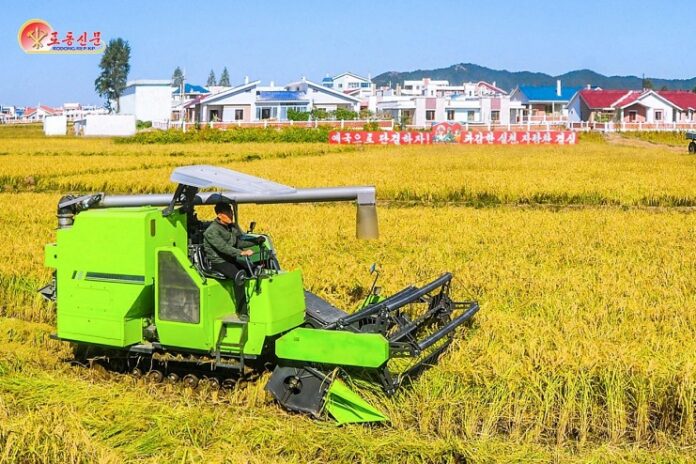Tags
N. Korean rice prices stabilize at record highs
“Rice prices keep rising while market activity stays sluggish, and many people are struggling to put food on the table,” a source in Ryanggang province told Daily NK
By Seulkee Jang

North Korean rice prices have settled around 12,000 won per kilogram after breaking the 10,000 won barrier for the first time on record. Meanwhile, corn prices have dropped moderately as other grains have become available in markets.
According to Daily NK’s regular market price survey, rice sold for 12,000 North Korean won per kilogram at a Pyongyang marketplace on June 22—unchanged from the previous survey conducted two weeks earlier on June 7.
Rice prices remained stable in other regions as well. In Hyesan, Ryanggang province, rice traded for 12,200 won per kilogram on June 22, dropping just 200 won from the June 7 price.
Corn prices, however, showed a clear downward trend. In Pyongyang and Hyesan marketplaces, corn sold for 4,000 and 4,100 won per kilogram respectively on June 22—representing declines of 11.1% and 12.8% from two weeks earlier.
The steepest corn price drop occurred in Sinuiju, North Pyongan province, where it fell 17.4% to 3,800 won per kilogram over the same period.
Seasonal harvest affects grain demand
This significant drop in corn prices appears linked to reduced demand for corn, which typically serves as a rice substitute, following this year’s potato and barley harvests.
“Corn prices are falling as potato and wheat crops hit the market,” explained Cho Chung-hee, director of Good Farmers and a North Korean farming expert, in a phone interview with Daily NK. “Grain drying machines distributed to farms this year seem to be helping wheat reach markets faster than usual.”
In past years, substitute grain prices wouldn’t drop until early July, even when potatoes and wheat were harvested in June, due to the time needed to bring crops to market. This year, however, the typical price decline has arrived earlier.
But the relief may be short-lived. “Internal research shows wheat and barley crops performed poorly this year,” Cho noted. “Output ranged from 1.7 to 2.5 tons per jongbo (2.45 acres), suggesting the total harvest was much lower than normal years.”
Given this year’s meager wheat and barley harvest, experts believe the impact on market grain prices may prove temporary.
The food shortage affecting North Korea’s population has worsened noticeably in recent months.
“Rice prices keep rising while market activity stays sluggish, and many people are struggling to put food on the table,” said a source in Ryanggang province. “Families with decent incomes are making do with rice mixed with corn, but many can’t even afford that.”
The situation has become particularly dire for vulnerable populations. “Elderly people without meaningful income are collapsing from hunger,” the source continued. “People wish the government would provide even modest rations at a time like this.”
Market restrictions add pressure
Grain merchants are also facing increased difficulties due to rising market fees and tighter restrictions on market activity.
“Rice vendors are being treated like criminals, as if we’re responsible for rising food prices—but that treatment just drives prices even higher,” one grain vendor told Daily NK’s source. “It’s unfair for the government to disrupt the livelihoods of people selling food when it can’t stabilize prices either.”
The North Korean won’s exchange rate against the U.S. dollar, which had reached the 25,000-30,000 won range earlier this month, declined slightly. The won-to-yuan exchange rate moved slightly upward.
With relatively stable dollar and yuan exchange rates, imported goods prices remained steady. At a Pyongyang market on June 22, gasoline and diesel sold for 24,300 won and 22,400 won per kilogram respectively—up just 0.8% and 1.8% from two weeks earlier.
https://www.dailynk.com/english/north-korean-rice-prices-stabilize-record-highs/Published Date: July 2, 2025






